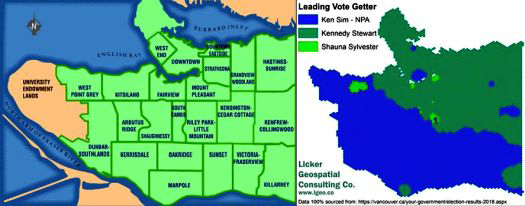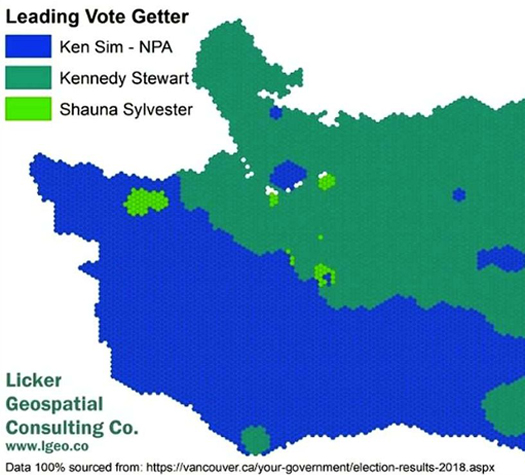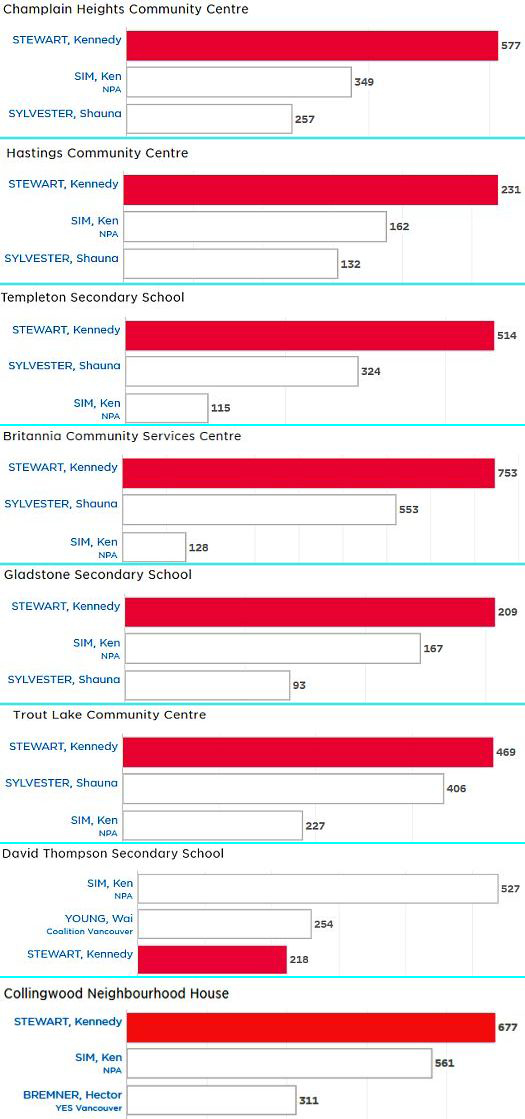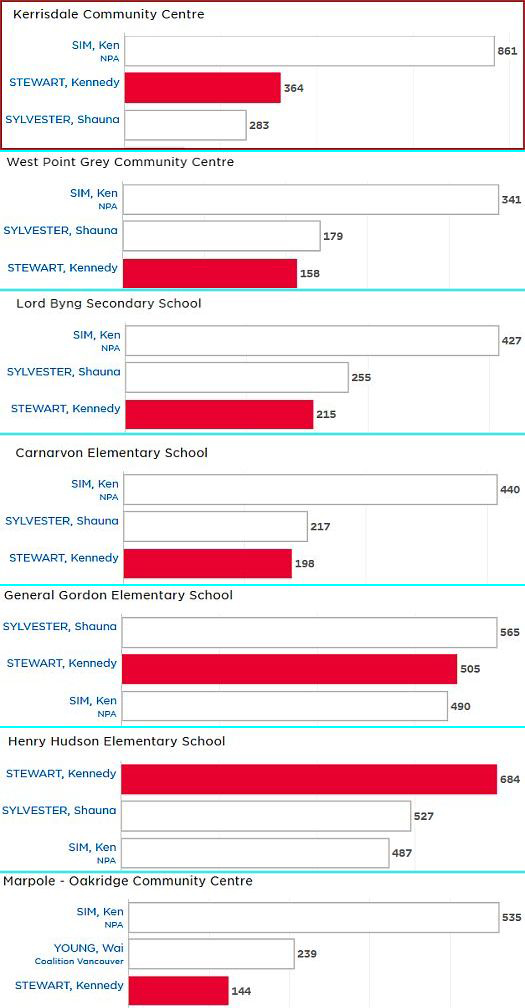
In an article published in the Vancouver Sun on Monday, reporter Dan Fumano quotes urban geographer Aaron Licker as saying …
“We’re adding people in these areas (Fairview & Mount Pleasant) that vote for parties that want more density,” said Licker, whose company Licker Geospatial Consulting does work for clients including civic governments and real estate companies. “The NPA can play to the single-family homeowners (on the west side of the city) forever, but they’re declining in terms of population. Forty years ago, most of Vancouver lived in single-family areas, but now most of Vancouver lives in multi-family zones.”
Licker’s thesis: the old east side / west side divide that dictated electoral outcomes in Vancouver is no longer as relevant as the north-south divide.
To that end, Licker publishes the following graphic …

While VanRamblings doesn’t dispute Licker’s thesis outright, we’re not so sure that his hypothesis — despite the graphic you see above — that it is the north-south divide, rather than the traditional east-west divide that is the determining factor in which neighbourhoods vote for which parties, and which Mayoral candidates.
According to the data we publish below — taken directly from the vancouver.ca website (take a look at the drop down menus to see how your neighbourhood voted, not just for Mayor but, if you scroll down, for Council, Park and School Board) — we’re not so sure that the east side-west side divide is quite as irrelevant as Mr. Licker would have us believe.
 You’ll note, almost universally, voters on Vancouver’s east side voted overwhelmingly for the progressive, VDLC-endorsed candidate for Mayor, Kennedy Stewart.
You’ll note, almost universally, voters on Vancouver’s east side voted overwhelmingly for the progressive, VDLC-endorsed candidate for Mayor, Kennedy Stewart.
For the most part, the west side continues to vote in their class and monied interests, while the east side votes in their working class voter interests.
 You’ll note, almost universally, voters on Vancouver’s west side voted overwhelmingly for the right-of-centre business candidate for Mayor, Ken Sim.
You’ll note, almost universally, voters on Vancouver’s west side voted overwhelmingly for the right-of-centre business candidate for Mayor, Ken Sim.
Single family dwelling west side voters tend to want to pay less property tax, while east side voters want government to provide neighbourhood amenities, inject a bit of humanity into the decision-making at city hall, and acknowledge the diverse cultural & ethnic make-up of our neighbourhoods.
Never the twain shall meet?
The new Vancouver City Council has a palpable opportunity to break down class and economic barriers, and govern for the whole city, be prudent fiscal managers, while providing services to the community. Vancouverites have never voted for as diverse a Vancouver City Council, with an independent Mayor who is dedicated to broaching the divide, and a Council with elected members from five different political — when has that ever happened in our city previous to the October 20th election?

The answer: never. All of which means, it’s time for change in Vancouver politics. No more of this left-right, east-west, north-south divide — we see what that’s done to our neighbours to the south. Is that what we want in Vancouver, in Canada? Perhaps I’m naïve, but I think the answer is no.